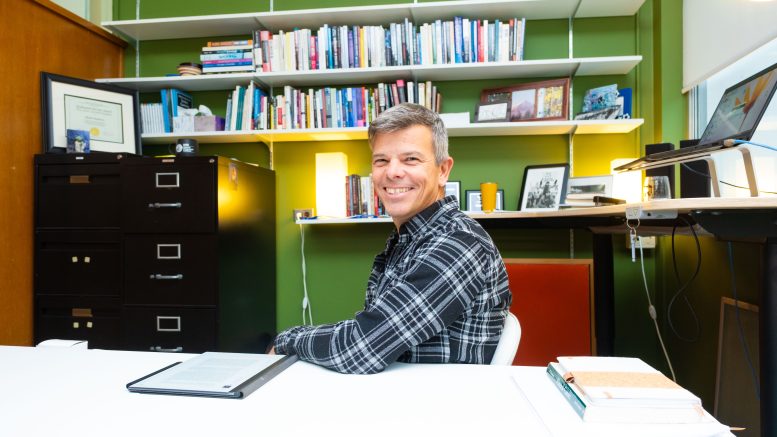Mark Hudson, a professor in the department of sociology and criminology at the U of M, studies how social structures and political economies influence the way people relate to the non-human world. His research has taken him from coffee farms in southern Mexico to union halls in Manitoba, examining how work, trade and politics shape both human and ecological systems.
Hudson’s work connects environmental sociology, labour and political economy — fields that often intersect in global climate discussions. His research stems from observing how capitalist economies have intensified environmental degradation.
“Our relationship with the non-human world is in a critically bad state,” he said. “In critical areas like climate change, biodiversity and nutrient cycles, all signs point toward a worsening of the situation, perhaps beyond critical tipping points.”
His interest in environmental research began while working as a tree-planter in British Columbia. “Walking the vast clearcuts, thinking about the labour of the loggers and my own labour planting monocrop, even-aged tree farms […] got me more interested in this work,” he said. That experience led him from economics to an interdisciplinary master’s in environmental studies.
Hudson recently co-authored a report on Alberta’s coal phase-out alongside research assistant Khatereh Salimi, an MA student in sociology. The project examined what happened to nearly 3,000 coal workers affected by the province’s plan to end coal-fired energy generation by 2030.
“We wanted to get rich accounts of what happened in people’s lives, rather than statistical results about re-employment,” Hudson said. Most participants found themselves in similar or better situations after transitioning out of coal production, though many still faced social and financial strains.
According to Hudson, the challenge now is ensuring that climate policy aligns with justice for workers, before the window to act closes. “We need to be thinking seriously about how to support workers through what all of the climate science tells us is an absolutely necessary phase-out of fossil energy,” he said.
Hudson’s broader goal is to reframe climate politics. According to him, much of today’s climate politics remains overly reliant on elite-driven solutions — whether those are political negotiations, technological fixes like carbon capture or market-based incentives for renewable investment. While such efforts may play a role, Hudson noted that history offers little evidence they can meet the scale of the crisis. Instead, he hopes his research shifts focus toward people-led action.
“If we want a liveable planet, it will need to be built by the 99 per cent,” Hudson said. For him, the fight for environmental sustainability and workers’ rights are deeply interconnected as they are “rooted in the same soil.”
Currently, Hudson is returning to research on wildland fires — the subject of his PhD and first book. He plans to spend part of his upcoming sabbatical in Finland and Sweden to study how societies can live with fire, rather than seeking to eliminate it entirely.
Hudson wants students to “have really good mental health supports, and build or join a community of critical but supportive colleagues.” He also encouraged students to look beyond surface explanations. “Always take the extra step to move from people’s values or beliefs to […] investigate where they came from.”



